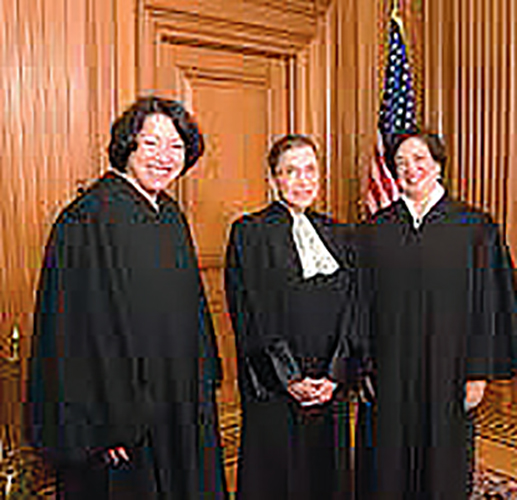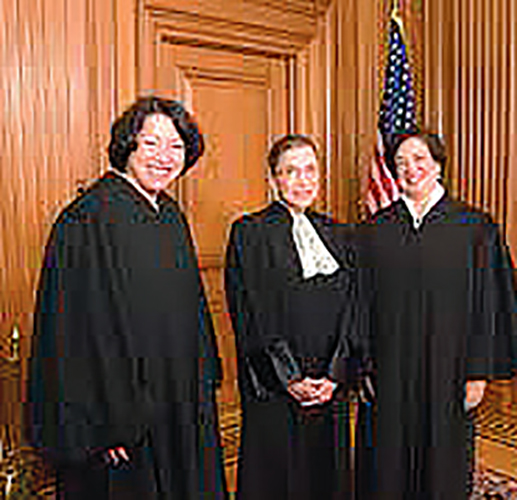

When the Supreme Court issued its decision allowing sectarian prayer at public meetings last Monday, many Jewish organizations reacted, almost all of them unhappy with the decision, except for the Orthodox Union.

In a statement from Washington, Nathan Diament, Director of the OU’s Institute for Public Affairs said, “While the OU didn’t participate in this case, we applaud the consensus perspective present on both sides—that religion has a place in America’s public square and it should be mindful of our pluralism. It’s clear from the opinions written by Justice Kennedy for the majority and Justice Kagan for the dissent that their differences in the Town of Greece case turn on their views of the specific facts of the case and whether the practice there was sufficiently mindful, in context, of American religious pluralism.”

Other organizations were much less sanguine. The Jewish Council for Public Affairs issued a statement saying that the narrow 5-4 decision “was an erosion of the Bill of Rights and its protections.”
The case, Town of Greece v. Susan Galloway and Linda Stephens, involved a small town in upstate New York which has, according to the JTA, “since 1999 opened meetings with prayer, almost always by a Christian clergyman who at times proselytized.” The JCPA filed a friend of the court brief along with the American Jewish Committee in opposition to the Town and in support of existing precedents regarding separation of religion and state.
“A guiding principle in our democracy is that no group or individual feels that the government prefers one religion over another. The First Amendment protections are intended to ensure just that. Beginning our public meetings with a sectarian prayer can make some feel excluded. It is not the way to achieve a strong, dynamic, and inclusive union,” said JCPA President Rabbi Steve Gutow.
Expressing concern about the repercussions of the decision, JCPA Chair Susan W. Turnbull said “The Court today opened the gates to reconsidering years of legal precedents and court decisions. We are concerned that this could mark a turn towards more religion in the public arena which could discourage the participation of minority groups.”
Mark Stern, general counsel of the American Jewish Committee, said it could have been worse. He told The Jewish Week, “Of course we’re disappointed…What may be our desired result was not on the table. The ‘thoughtless way’ that Greece administered its opening prayers gave the impression that the town favored Christianity.
Justice Anthony Kennedy, who wrote the majority decision, makes it clear that non-Christians cannot be denigrated or excluded from taking part in the town’s chaplain of the month column. The case was brought because the town did not allow clergy from other sects and religions to deliver the invocation at town hall meetings.
Stern noted that the language in Kennedy’s decision “sends a warning signal to those who would use legislative prayer to be exclusively Christian,” he said.
The ADL and the National Council of Jewish Women filed amicus curiae briefs with the court on behalf of the plaintiffs, as did Americans United for Separation of Church and State.
Abraham Foxman, (a Bergenfield resident) said he was “profoundly disappointed because the decision “opens the door wide to overtly sectarian prayers before public meetings of government bodies. The court’s focus on whether the prayers are coercive misses the mark and reflects a deep insensitivity to religious minorities or those who are non-religious.”
In his decision, Kennedy wrote: “Ceremonial prayer is but a recognition that, since this nation was founded and until the present day, many Americans deem that their own existence must be understood by precepts far beyond that authority of government to alter or define.”
The 5-4 decision was also split along religious lines, with the three Jewish justices (Ginsburg, Breyer and Kagan) one Catholic (Sotomayor) on the court, voting against Christian protestants (Roberts, Alito, Kennedy, Scalia and Thomas).
Justice Elana Kagan wrote that the town’s practice of using almost exclusively Christian clergy could not be reconciled “with the First Amendment’s promise that every citizen irrespective of her religion owns an equal share of her government.” She added, that this would “put some residents to the unenviable choice of either pretending to pray like the majority or declining to join its communal activity, at the very moment of petitioning their elected leaders.”











